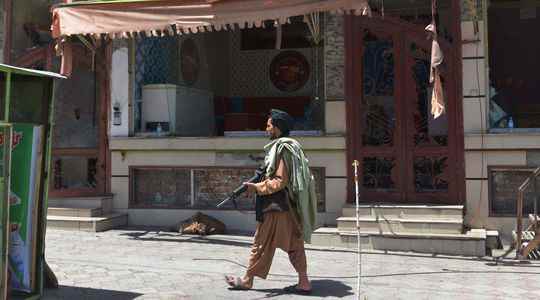Last summer, our television screens broadcast images of Afghans trying to flee their country on the verge of falling under the yoke of the Taliban. The newspapers were saturated with articles analyzing the brutal and humiliating failure suffered by Westerners in Afghanistan. Not a day passed without chilling testimonies sketching out the dark future that was taking shape for the Afghan people. It was barely a year ago. Yet it seems like an eternity.
Very quickly, articles on Afghanistan were relegated to the back pages. Reports on the country became rarer, then almost non-existent. A modest veil was thrown over this Afghan nightmare, where too many of our soldiers had left their lives, a sanctuary which had ended up burying us as it had done the Soviets a few decades earlier.
Worse, our leaders have stopped talking about it. While it had been at the heart of the discussions at the NATO summit held in Brussels in June 2021, the Afghan issue was barely mentioned at the last Alliance summit which took place in Madrid there. a few weeks. However, Afghanistan should never have ceased to be at the heart of our concerns.
Food insecurity and security threat
Food insecurity now threatens 20 million Afghans – half the population – and more than 1 million children could starve to death next winter. In Afghanistan, famine is about to kill many more than decades of war. The reality of the Islamic Emirate of Afghanistan is women and girls sent back to the darkness of their homes. As for the little boys, at barely 7 or 8 years old, they find themselves working in the coal mines. And, despite the promises made by the new masters of the country, acts of torture and summary executions multiplied against those who had served the previous government and had no chance to flee.
In terms of security, the July 31 elimination of the leader of Al-Qaeda, Ayman al-Zawahiri, by an American drone strike in the heart of Kabul, reminded us that Afghanistan has once again become the sanctuary of jihadists it was before September 11, 2001. A report recently submitted to the UN Security Council also indicates that several hundred members of Al-Qaeda operate on Afghan territory while Daesh remains very active there. Afghan civilians are the first victims, since more than 700 of them have lost their lives in attacks perpetrated by the Islamic State for a year.
Beyond the security threat it poses as a rear base for terrorism, Afghanistan has lost none of its geopolitical importance. At a time when the competition between great powers is being played out over the control of natural resources, Afghan reserves of coal, lithium, copper and other minerals – which some value at more than 1 trillion [NDLR : 1 milliard de milliards] euros – whet appetites. To be convinced of this, it suffices to observe the ballet of Chinese and Russian investors in Kabul and to note that exports to Pakistan and India have exploded over the past year.
Putin and the Taliban, the long-term strategy
In this context, the little attention that we now devote to this country says a lot about one of the greatest weaknesses of our Western democracies: our inability to consider the challenges we face in the long term and in a strategic manner. The media’s short-termism on Afghanistan is in fact a reflection of the volatility of our public opinion, which our political elites have long since stopped fighting and now only seek to support.
Our enemies have understood this. Just as the Taliban regime knew Westerners would eventually become blind to its atrocities, Vladimir Putin is betting that time will be on his side. In a war in Ukraine that is doomed to drag on, the West – already tired of this conflict which has ceased to make the front pages of our newspapers and tormented by the economic sacrifices it will have to endure – gives the impression of wanting look elsewhere. However, the master of the Kremlin knows that once Westerners have looked away from the horrors committed on their own soil, he will have taken a decisive step forward towards victory.
*Jérémie Gallon is Managing Director for Europe of the geopolitical consulting firm McLarty Associates. He teaches international issues at Sciences Po and has published Henry Kissinger. The European (Gallimard).
